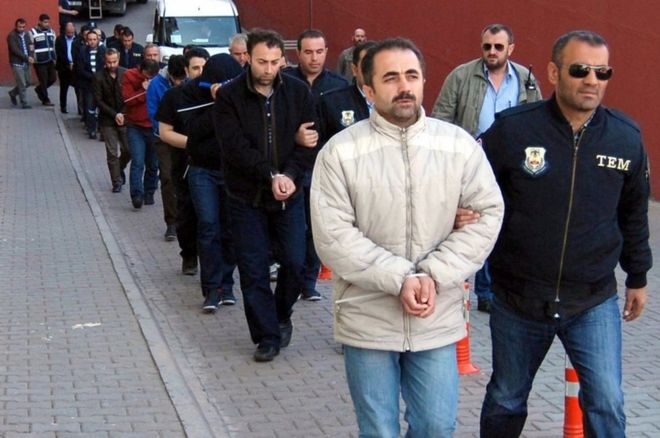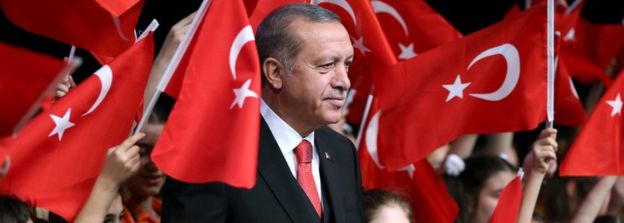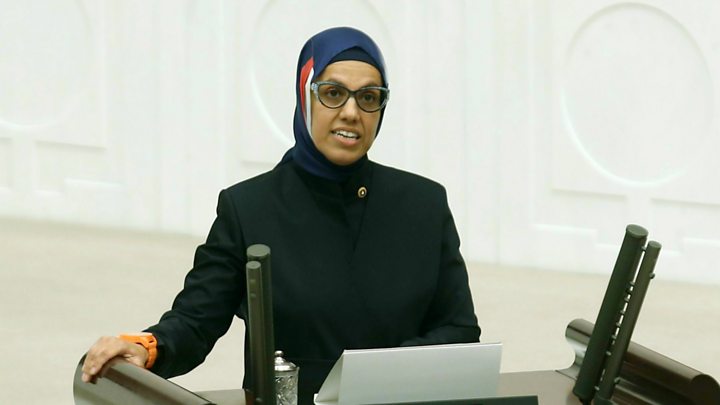
Turkey’s police force has suspended more than 9,000 officers over alleged links to the US-based Islamic preacher Fethullah Gulen.
It said the action had been taken on the grounds of national security.
President Tayyip Erdogan accuses Mr Gulen of instigating a failed coup against him last July – a charge the cleric denies.
Earlier, authorities detained more than 1,000 people in the latest operation against alleged Gulen supporters.
The nationwide sweep was one of the largest such operations carried out in Turkey in months.
- Turkey under Erdogan: The full story
- Why did Turkey hold a referendum?
Interior Minister Suleyman Soylu said it had targeted a Gulen network “that infiltrated our police force, called ‘secret imams'”.
He said more than “secret imams” had been detained and the operation was continuing.
In the aftermath of the 15 July coup attempt, which was led by military officers, 40,000 people were arrested and 120,000 sacked or suspended.
They included soldiers, police, teachers, and public servants – all of whom were accused of having links with militant groups.
- A brief guide to Turkey’s coup
- Who is Turkey’s pugnacious president?
The latest purge comes just over a week after President Erdogan narrowly won a controversial referendum on increasing his powers.
Opponents fear the victory, which has bitterly divided Turkey, brings him closer to authoritarian rule.
Two days after the referendum, Turkey’s parliament extended a nine-month state of emergency by a further three months.
Erdogan tightens grip – by Mark Lowen, BBC News, Istanbul
It was widely expected that the post-coup purge would accelerate once President Erdogan achieved the referendum victory he wanted.
He feels emboldened and there’s no longer a risk of jeopardising potential referendum votes.
 Image copyrightREUTERS
Image copyrightREUTERSNo matter that the opposition still contests the referendum results, and their claim of widespread fraud is backed by a scathing report from election observers. The president says the result is final.
So on Wednesday the police bore the brunt of the detentions, but other institutions are likely to follow suit.
The governing AKP party was full of Gulen supporters when Mr Erdogan and the cleric were staunch allies.
It hasn’t yet been purged and could now be targeted. And even if not, the threat will be dangled over potential opponents like a sword of Damocles: speak out and your Gulen affiliation will be exposed.
The scale of the “anti-Gulen” arrests has raised alarm in Europe, and stalled Turkey’s bid to join the EU.
After the latest sweep, Germany’s foreign ministry said it had “taken note of the mass detentions with concern”.














